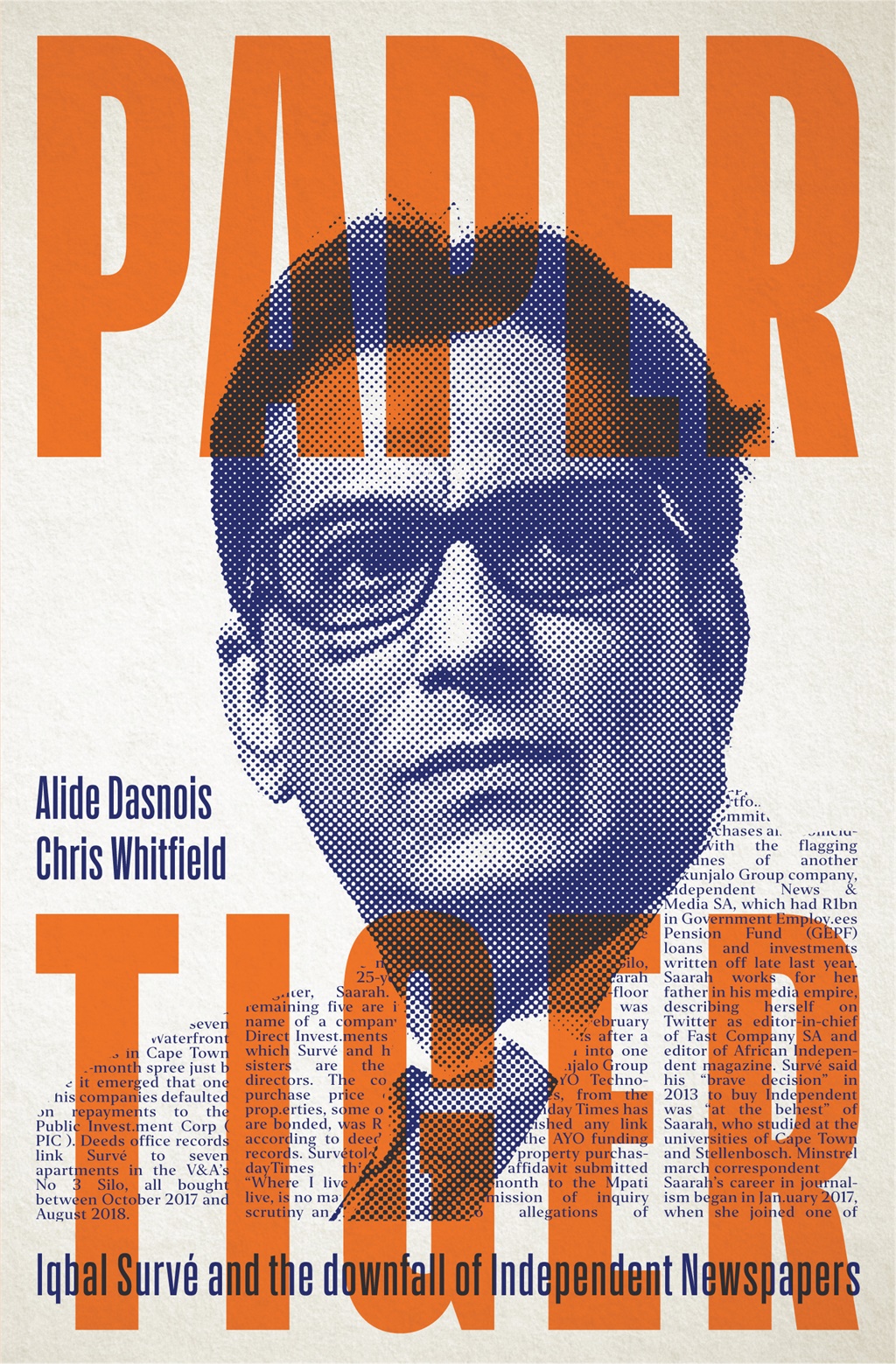
It was not long before what many characterised as a 'purge' of senior staff began at Independent Newspapers. Some saw it as a move to get rid of white staff under the guise of transformation, but many black staff members also felt they were being victimised and pushed out. Mostly it seemed that independent-minded members of staff were being targeted. Some people left of their own volition. Some left because the environment had become toxic. Some were forced out.
One of those who left of his own choosing was Moshoeshoe Monare, editor of the Sunday Independent. 'I don't think I was initially targeted, and I think I worked closely with editorial management, but it was the intolerance of different views that led to me believing – rightly or wrongly – that my editorship was not aligned with the new philosophy,' recalls Monare. 'I tendered my resignation in the summer of 2014 when it was very clear that my independence as an editor was compromised. I was the editor of the Sunday Independent, a political paper, but I was told that all my staff – mostly political – would report to group editor Karima Brown.
'She demanded to be in my diary meetings and I politely told her that it was inappropriate, even though I did not mind briefing her at a strategic level once a week or month. I was also told that op-eds would be commissioned by [group editor] Vukani Mde as they fell under his budget.
READ: Cape Times must apologise to former editor - ombudsman
'This was shortly after I wrote a column reassuring the readers that whatever appeared in the paper would be my decision. Therefore, I saw the decision to take away the budget and staff as an excuse to clip my independence by subterfuge.
'Even though I explained to Iqbal … the reason for my column – that I was communicating directly to my readers in the middle of the Alide storm – he used my column at the staff strategy session to insinuate that I was accusing him of editorial interference.
'Our relationship took a downturn. The last straw was when he wanted to write a column in all the titles "reassuring the readers" of his intentions, and editors were asked to write another column agreeing with him. I refused and resigned.' Of all the newspapers in the Independent stable that week, the Sunday Independent was the only one in which the editor did not pen a column to accompany Survé's effort.
Monare recalls the mood in the company at the time: 'Many editorial staff were unsettled and carried on doing their jobs to pay the bills … not because they believed in what they were told.
'Some who believed that the company used to be run by whites who treated them contemptuously were emboldened overnight. But what they perceived as empowerment was in fact sycophancy and undermined the practice of journalism. But even the red-eyed fanatics and loyalists were later shown the door or left out in the cold, perhaps a painful lesson that sycophancy is no insurance.' He too had been a believer in Survé's promises.
'At the beginning I believed in him. I was impressed by his apparent passion for transformation and empowerment. When he suggested 10% shares for management and staff I was really very impressed and inspired because it had never happened in my fifteen years at Independent.
'But as soon as he came on board, I was slightly disturbed by his politics. At one dinner, he said he wouldn't mind if we took a stance to openly support the government and the ANC. I reminded him of the consequences of factional politics in political parties, and that governments came and went – and that as newspapers, our loyalty should be directed to our readers while not antagonising stakeholders such as government.
'It was clear that we had a different view of the world. The senior editorial management he introduced were also intolerant of different views and distrusting of anyone who expressed a different opinion. What appeared to be an initial difference of opinion became a culture of distrust and suspicion,' says Monare.
Another editor who left of his own accord was Philani Mgwaba of The Mercury. Initially he had been 'very excited' at the prospect of a South African owner. 'After years of asset-stripping and little-to-no investment by its Irish owners, who had gutted Independent Newspapers, I was optimistic that the new owners, being locals, would have the interest of the company and its staff, at heart,' he recalls.
Mgwaba did, however, worry about 'whether the new owners would respect the editorial independence of the editors and journalists [and allow them] to continue to do their work without interference'.
'I recall that during the honeymoon period, Survé made reassuring noises about editorial independence, even an editorial charter to protect journalists; promises which were never fulfilled.
'I thought at the time that the sale of the company presented a great opportunity for staff at Independent to own a meaningful stake in the company, say between 15% and 25%. By that I mean all the staff, from the lowest-paid worker to journalists etc.: the people who toiled to keep the company alive, in good and bad times. Events since have proved I was naive to even believe this could come to pass.'
Mgwaba says that doubts began to creep in even before Survé was introduced to staff. 'I got concerned when I heard his consortium had paid R2 billion for the company because, having worked for Independent Newspapers for two decades and being privy to declines in newspaper circulation numbers and the profitability of the group, I didn't believe it was worth that amount.
'I believed they had grossly overpaid and the question was why they would do that. I thought there was more to the purchase than met the eye; I didn't think it was a pure business decision to buy the company. I thought the PIC [Public Investment Corporation] had taken a political decision to fund Survé, despite the fact that the purchase, at the price that was agreed, did not seem to make business sense.
'My private concerns turned to alarm when, soon after Iqbal Survé took control, editors began to receive instructions from Iqbal's underlings and acolytes to publish opinion pieces that shamelessly flattered and promoted him and/or defended him from legitimate questions that were being raised about his curious business interests.'
Mgwaba had by then edited four Independent titles – Isolezwe, the Pretoria News, the Sunday Tribune and The Mercury. 'During my two decades with the company, as a reporter and, later, as an editor, I had never, ever received any instruction or been urged by my seniors to write or publish a story to serve a particular business or political end.
'As an editor, I had always had complete discretion and control of editorial content of the title I was editing, so these subtle and sometimes not-so-subtle pressures were an absolute shock. I knew then for sure that I did not belong in that company and had to go.
'I am sure that if I had not resigned at the time I did, I would have been fired at some stage for refusing to toe the line,' says Mgwaba.
* This is an extract from Paper Tiger by Alide Dasnois and Chris Whitfield, published by NB Publishers.




 Publications
Publications
 Partners
Partners















